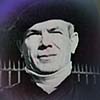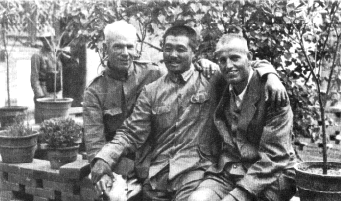
Norman Bethune (1890-1939)
- born in Gravenhurst, Ontario
- served as a stretcher bearer in a field ambulance unit of the Canadian army in France in 1915
- a bout of tuberculosis inspired his interest in thoracic surgery
- joined the surgical team at Montreal's Royal Victoria Hospital
- produced over a dozen new surgical instruments
- became disillusioned with medical practice because often patients who were saved by surgery became sick again when they returned to squalid living conditions
- visited the Soviet Union, and secretly joined the communist party in 1935
- opened a health clinic for the unemployed
- promoted reform of the health care system
- fought the fascists in Spain in 1936
- in Madrid he organized the first mobile blood-transfusion unit
- in 1938 he went to aid the Chinese against the Japanese invasion
- in China he formed the first mobile medical unit, which could be carried on two mules
- died of an infection due to the lack of penicillin, the infection ocurred during surgery due to a lack of surgical gloves
- Bethune is regarded as a martyr in China and is referred to as "Pai-ch'iu-en" which means "white weeks grace"
- next to his tomb in China there is a statue, a pavillion, a museum, and a hospital dedicated to him
- the family home in Gravenhurst is now a museum
- played by Donald Sutherland in the biographical film: "Bethune: Making of a Hero"
- biography: The Scalpel, The Sword by Ted Allen and Sydney Gordon
- for more information see Canada firsts (1992) by Ralph Nader, Nadia Milleron, and Duff Conacher

 back to the Well Known Canadians Page
back to the Well Known Canadians Page



 back to the Well Known Canadians Page
back to the Well Known Canadians Page